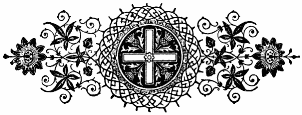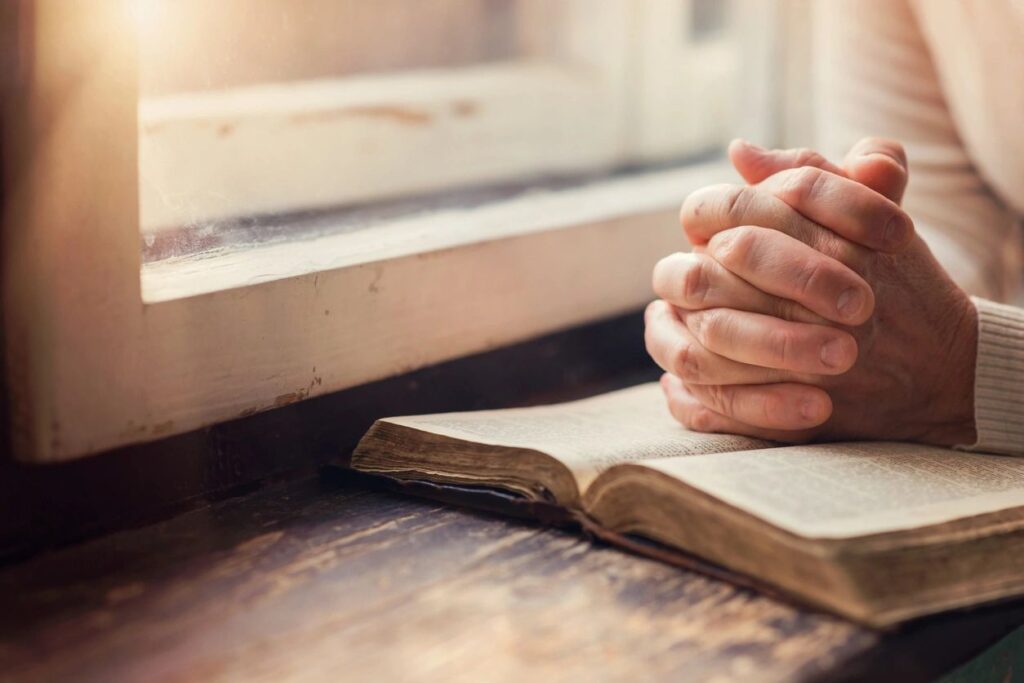Spiritual Preparation for Sickness or Death
♱ Introduction:
Christ teaches us to be so loving care upon those who are sick. He builds us do all we can to alleviate the bodily suffering and also to attend to the spiritual needs of the sick and dying. In providing for the body we may not neglect the soul. In addition to calling in nurse and physician, we must call in the best of physicians Jesus Christ. Himself. He comes to the sick with Grace in the sacrament of penance and Extreme Unction shine and gives his very body and blood in Holy Communion.
We should welcome the priest who brings these sacraments as we would welcome Christ. It is as if Jesus were to enter the sick room and say: “My friends, I am here to console and comfort this poor sick man; I will heal the ills of his soul. And if need be, even those of his body. I will make him content and happy. “ How vain and foolish is the fear of those who delay in calling the priest for their sick friends and relatives!
It Is a fear of asking Christ to come and solace them. It is not only a vain fear but it is sinful fear, for a grave obligation rests upon us to receive the sacraments in danger of death, especially if we be in Mortal Sin. And this obligation is shared by those attending this sick. Let us call the priest and in due time!
♱ Calling the Priest:
If the case is very urgent, call the nearest priest. Otherwise call the pastor or assistant pastor. If possible communicate in-person, otherwise telephone. Do not send a child unless no one else is available. Give the priest the full and exact name, address, age, and condition of the sick person (report whether conscious and/or subject to vomiting). Be sure to mention the fact if he has been attended by a priest in the sickness and state when he last received the sacraments. Read More
♱ Confession:
The Sacrament of Penance removes mortal sin and brings peace to the soul by removing depressing dread of divine judgment. The sinner becomes a child of God and is ready to accept all trials and sufferings from the hands of his Heavenly Father. A General Confession is advisable before death, especially if past confessions are doubtful. Persons who constantly worry about their past will be told by their confessor how to act in this manner.
♱ Holy Communion:
Willfully to neglect receiving capital Holy Communion before death is a mortal sin. In fact if a dying person has received the Blessed Sacrament the day previous, he still must receive Holy Viaticum, as holy communion is called when given to those in danger of death. If he has received on the same day, the church advises that he receive communion again as Viaticum. Holy Viaticum may be received frequently, even daily as long as the danger continues. There is no obligation to be fasting after midnight. The sick person may eat or drink anything whatsoever even though she could readily keep the fast. Sick persons not in danger of death do not receive Holy Communion as Viaticum; they are obliged to keep the fast from midnight previous to receiving. Read More
♱ Extreme Unction
In the list of sacraments conferred by anointing extreme unction is the last. It is likewise the anointing for the last moments of life. Hence we call it the last anointing or Extreme Unction. It is not extreme in the sense that we must be in extreme danger to receive it, nor that once we have received it we have no chance of recovery. This sacrament is intended by Christ as a health restorer for the soul; it frees from venial sin, increases sanctifying grace, removes the remains of weakness and sin in the soul, removes the temporal punishment due to offenses, gives the soul strength and courage to face the last Temptations in the death struggle, and enter eternity ready for heaven. In some cases it even removes mortal sin as we shall explain. Read More
♱ Last Blessings and Indulgences
The priest who administers the sacraments to the dying will usually give the Last Blessing, which carries with it a Plenary Indulgence. A Plenary Indulgence is the complete remission of punishment due to sins already forgiven. After gaining such an indulgence we are truly ready for immediate admission to the blessed vision of God. Of course all of our sins must first be sacramentally forgiven and all affection for sin removed. We have ample means to affect this by receiving very devoutly the Sacrament of Penance and Holy Communion. The Plenary Indulgence that is given by the Last Blessing has one advantage over all the others, namely it takes effect not when the blessing is given, but in the very last moment of life. Read More
♱ Perfect Contrition:
Sorrow for sin is a conversion from the sin into which we have fallen into God, whom we have offended. If we turn to God because we fear His justice, which will punish us, deprive us of heaven, and condemn us to hell; or because of the great ugliness of sin in the eyes of God, we have only Imperfect Contrition. If we love God above all things for His own great goodness and are sorry for having offended Him, we have Perfect Contrition. The very fear of Hell may help us to make an act of Perfect Contrition by awakening in us the desire of freeing ourselves from sin. This fear may remain while we make the act of Perfect Contrition, but even greater than our fear of hell must be our love for the all-good God, whom we have offended. Thus with the grace of God, Perfect Contrition becomes easy.
♱ Preparing the Sick Room For the Sacraments:
The atmosphere of the sick room should be one of dignity, serenity and quiet. It is beneficial to place within sight of the patient, images of comfort and reflection, such as happy family photos, holy images of Our Lord and the Blessed Mother and Saints. The sick-room out to be the best room we have. When the sacraments are to be administered, it should be clean and well ventilated; all unnecessary things such as dishes, medicines, etc. should be removed. No animals are to be allowed in the room. A change of linens before the sacraments are administered is recommended. The patient should be washed and combed and the parts to be anointed should be clean and presentable. Since the house becomes the dwelling place of our Lord in the Holy Eucharist, all who are present are expected to show by their conduct the spirit of Christian faith. Read More
♱ Help in the Absense of a Priest
It often happens that the priest cannot be called in time. In such a case be calm and do not show anxiety or agitation. Be concerned with the only thing that matters, namely the eternal salvation of the sick person. Light the candles, give the dying person a crucifix to kiss and bid him have confidence in Jesus, who died in order to save us; and in his blood, which cries powerfully to heaven for mercy. Sprinkle the bed and the sick person with holy water. Then make with him Acts of Faith, Hope, Love,Contrition and Resignation to God’s Will. If he can speak let him repeat after you, if he cannot get him to follow the words in his heart. Let the acts be short, frequently repeat the name of Jesus. Speak slowly and clearly. As death approaches speak louder. Continue even after consciousness seems lost for the sense of hearing may be functioning even after the other senses cease to do so. Read More
♱ For the Dying Non-Catholic
Those who are not Catholics should also be helped in their last moments. If they are unbaptized and are willing to believe all that the church teaches, we must baptize them. If it is not sure if they have been properly baptized, then we baptize them conditionally. If the person is well disposed to getting baptized, but there is reason to fear that he does not want to join the Church or if mentioning the Catholic Church will only disturb him and thus endanger the work of saving his soul, we may proceed in the following manner… Read More
♱ How to Baptize in an Emergency
To baptize we take ordinary water (not holy water), and pour it so that it flows on the head of the person, saying at the same time: Read More
♱ Conclusion
To be warned by sickness that death is approaching is a grace for it is a terrible thing to go to eternity unprepared. But since we are not certain of receiving such a warning let us choose the safer course and always lead a good Christian life.


